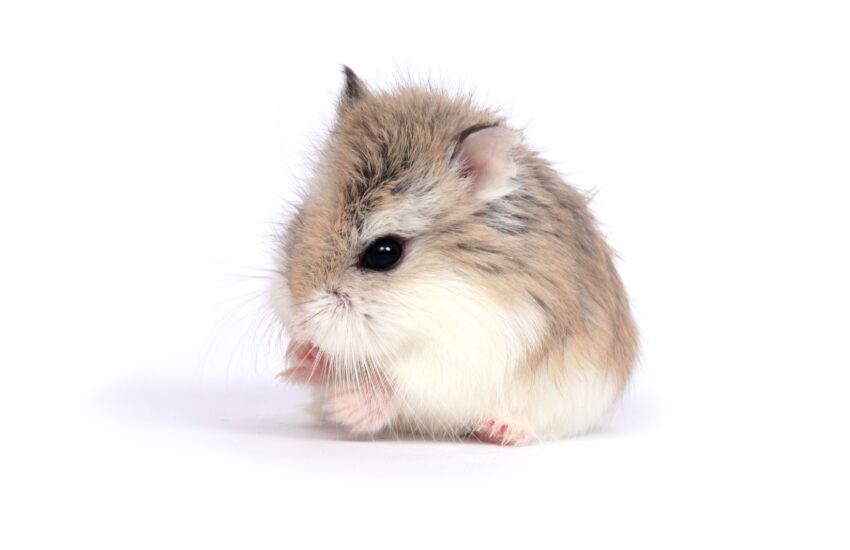Rare and Exotic Hamster Breeds
If you are a hamster enthusiast or considering adopting one of these delightful creatures, exploring the world of rare and exotic hamster breeds is essential. These unique breeds come with distinct traits, characteristics, and care requirements that differ from the common Syrian or dwarf hamsters. In this article, we will dive into various rare hamster breeds, their care tips, habitats, and fascinating traits.
Understanding Rare Hamster Breeds
Rare hamster breeds are often sought after by collectors and pet owners who want something more distinctive than the usual pets found in most stores. These breeds can exhibit unique colorations, sizes, and personalities. One of the important factors to consider when choosing a rare breed is that specialized care may be required. Keep in mind that the availability of these hamsters can vary significantly, making them more of a treasure for die-hard hamster aficionados.
Unique Features of Rare Hamster Breeds
One defining characteristic of rare hamsters is their striking appearances. Many of these breeds may feature rare coat colors or patterns that are uncommon in standard hamster varieties. For instance, the Blue Sapphire Hamster is a remarkable breed that catches the eye with its stunning blue-toned fur. These beautiful creatures are not only visually appealing but may also showcase unique behaviors that can be both entertaining and rewarding.

Common Types of Rare Hamster Breeds
Some popular types of rare hamster breeds include the Chinese Dwarf Hamster, the Campbell’s Dwarf Hamster, and the Blue Sapphire Hamster. Each of these breeds has its own set of traits and requirements. For example, the Chinese Dwarf is often praised for its agile behavior and affectionate nature, while Campbell’s Dwarf offers an assortment of color variations. Understanding the specific needs and personality traits of these breeds is vital for prospective pet owners.
Care Tips for Exotic Hamster Breeds
Providing suitable care for rare and exotic hamster breeds requires extra attention to ensure they thrive. Each breed may have specific habitat needs, dietary preferences, and social behaviors that must be accommodated in their living environment. Proper care will contribute significantly to the well-being and happiness of these unique pets.
Habitat Requirements for Rare Breeds
Setting up a suitable habitat is crucial for the health of rare hamster breeds. Spacious cages with horizontal bars allow these active creatures to climb and explore. Add bedding materials like aspen shavings or paper-based products, which are safer compared to cedar or pine shavings. Ensure that the cage is well-ventilated and positioned in a quiet, climate-controlled area away from direct sunlight and drafts, helping maintain optimal conditions for your hamster.
Dietary Needs of Exotic Hamsters
The dietary needs of rare hamster breeds can differ significantly from more common varieties. A high-quality pellet food formulated specifically for hamsters is a fundamental part of their diet. Supplement their diet with fresh fruits and vegetables, but introduce new foods gradually to avoid digestive issues. It is critical to research specific dietary recommendations for each breed to ensure they receive the necessary nutrients for a long, healthy life.
The Benefits of Owning Rare Hamsters
Choosing to adopt a rare hamster breed can provide numerous benefits. Besides their captivating appearances, exotic hamsters often have unique personalities, which can enrich your experience as a pet owner. Observing their behaviors or quirks can be both enlightening and amusing. Moreover, owning a rare breed may lead to participation in specialized hamster communities where enthusiasts share insights and foster camaraderie.
Community and Support for Rare Hamster Owners
Becoming part of a community centered around rare hamster breeds can greatly enhance the ownership experience. Various online forums and local clubs provide support, advice, and information sharing among enthusiasts. These social connections can offer invaluable resources for care tips and opportunities to network with breeders specializing in exotic hamsters. Engaging with others who share your passion fosters a deeper appreciation for these unique pets.
Building a Collection of Rare Hamster Breeds
For experienced users, building a collection of rare hamster breeds can be incredibly rewarding. However, ensure that breeding and acquisition practices are ethical and derived from reputable breeders adhering to high animal welfare standards. Engaging in responsible ownership and promoting the health of these exotic breeds can result in a thriving and happy hamster environment for you and your furry companions.
Key Takeaways
- Rare hamster breeds possess distinct traits and unique appearances.
- Specific care requirements for habitat and diet must be met.
- Engagement with the community enriches the experience of ownership.
- Researching ethical breeders and care guides is vital for successful pet ownership.
FAQ
1. Are rare hamster breeds more expensive to care for?
Yes, rare hamster breeds may require specialized care, which can include a specific diet and habitat needs, potentially increasing overall costs. Additionally, their initial purchase price can be higher due to limited availability and breeder demand.
2. How can I find a reputable breeder for exotic hamsters?
To locate a reputable breeder, start by seeking recommendations from hamster enthusiast communities online. Research potential breeders, looking for positive reviews and adherence to ethical breeding practices. A good breeder will provide health guarantees and information on the breed’s care requirements.
3. What are some common health issues in rare breeds?
Rare hamster breeds can be susceptible to genetic health problems that may arise from selective breeding. Common conditions include respiratory issues and tumors. Regular veterinary check-ups are essential to monitor their health and catch potential problems early.
4. Can rare hamster breeds cohabitate with other pets?
Generally, it is not recommended to house hamsters with other pets, including other hamsters, due to their territorial nature. If considering introductions with other animals, always supervise interactions and ensure the safety of the hamster.
5. How long can exotic hamster breeds live?
Exotic hamster breeds typically have a lifespan of 2 to 4 years, yet with proper care and habitat maintenance, some may live longer. Regular veterinary care and a healthy diet can contribute to a longer, happier life.
